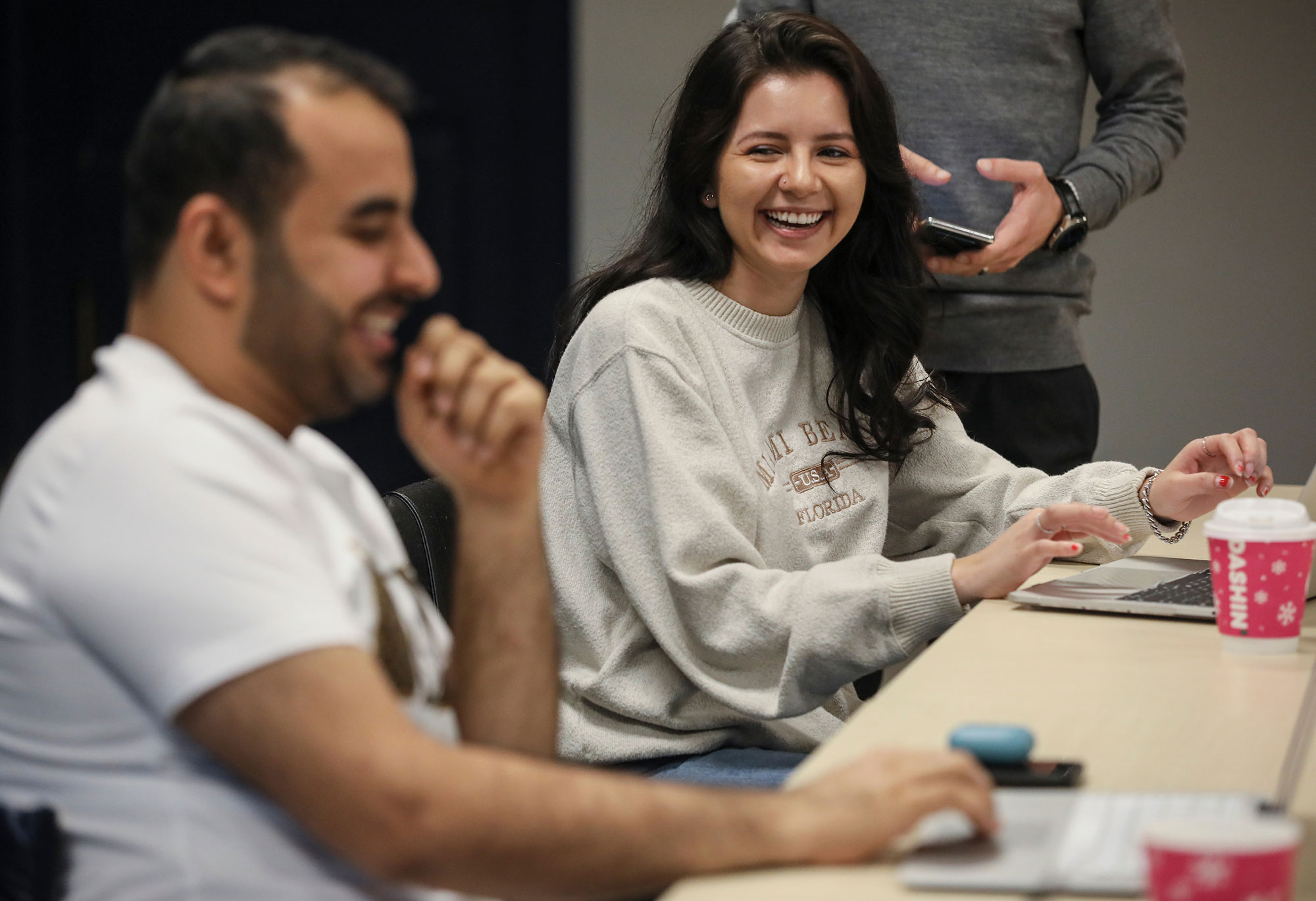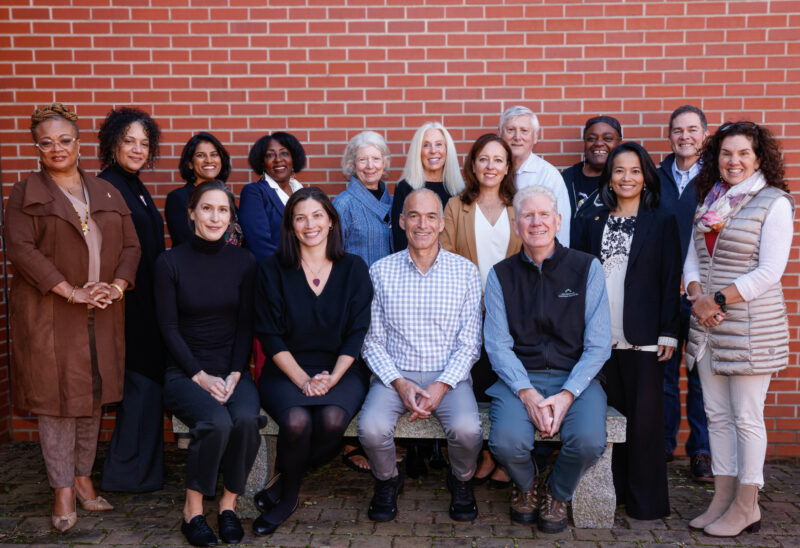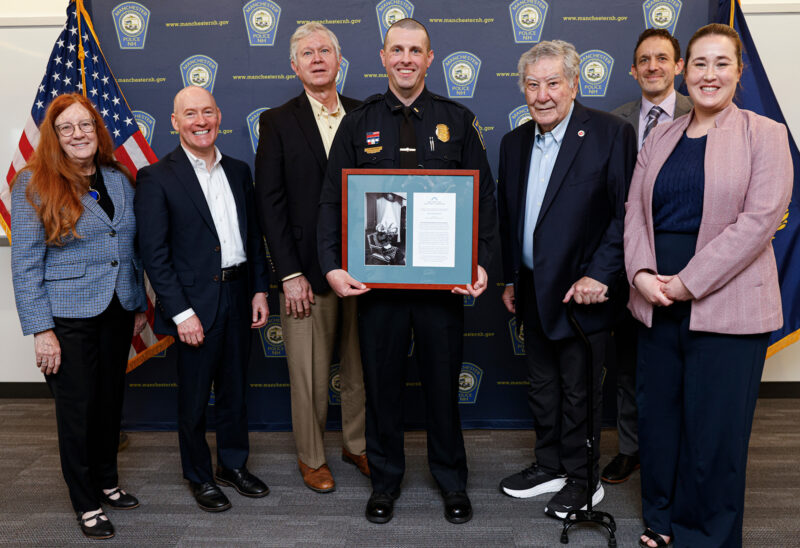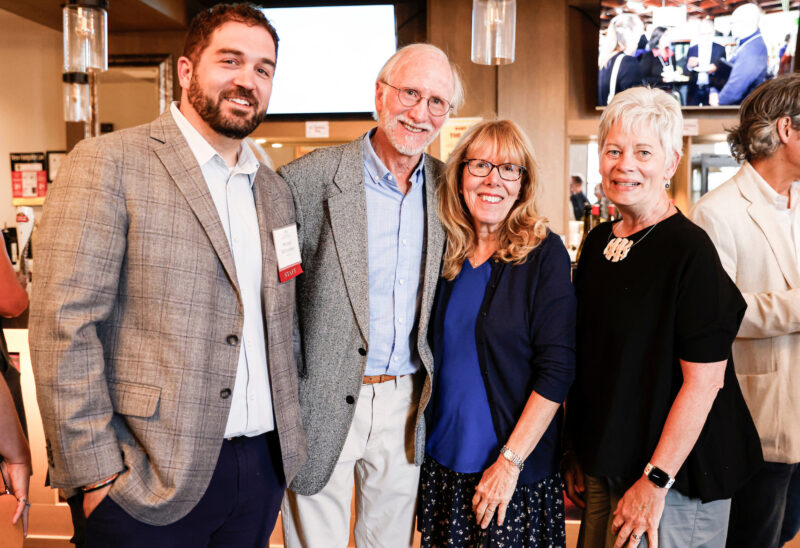Danna Gonzalez of Manchester works 10-hour days in a giant retail warehouse. She goes in at 4:30 in the afternoon and works until 3 a.m., cutting boxes open with a box-cutter and pushing them down the line to be unpacked.
But on her three off-days — and whenever else she can — she is at work earning her ticket out of that warehouse: as a college student enrolled through the Duet program, a nonprofit community partner of Southern New Hampshire University that gives people who face significant barriers the opportunity to get degrees and get ahead.
“I didn’t think I would have the opportunity to go to college,” said Gonzalez, who grew up in Manchester and graduated from Manchester Memorial High School. As a “Dreamer,” she is not eligible for federal financial aid or student loans. Now, this young woman who is the first in her family to attend college has finished her associate degree and started her bachelor’s in communications. She plans to work in marketing and dreams of film-directing.
“My dreams are more achievable now,” she says.
Duet, which started in Boston (where 500 students are enrolled) and has expanded to Manchester, helps students enroll in and complete online associate degrees at SNHU in health care management and general studies and bachelor’s degrees in communications, management and healthcare management. And it helps them convert those degrees into careers.
SNHU enrolls students worldwide in its innovative online degree programs; its partnership with Duet makes those degrees more affordable and accessible to students in their own backyard.
Students go at their own pace. Because tuition is charged per time enrolled instead of per credit (as in most traditional programs), the Duet/SNHU partnership offers an affordable and time-efficient alternative to traditional programs. Students can finish one class (or degree) and immediately move on to the next, with no limit on the number of credits they can earn in a semester. Duet provides each student with one-on-one coaching for enrollment, academics, and careers. The average completion time for an associate degree is 18 months, an additional 20 months for a bachelor’s. Career coaching helps students put their degrees to work in quality, high-paying jobs.
Many students in the program are the first in their families to attend college. Most work full time — many at multiple jobs. Many have children.
“Duet has taken the students with the most barriers to opportunity and removed all those barriers,” said Charitable Foundation Director of Education and Career Pathways Michael Turmelle.
A Charitable Foundation grant, made possible in part by a generous contribution from the Masiello Family Fund, is helping the program double its enrollment in Manchester to 100 students; hire a second academic coach; expand outreach and provide scholarships. The grant is part of the Foundation’s “New Hampshire Tomorrow” initiative to help increase opportunity for young people who face significant barriers to achieving their potential.
Duet’s Student center — located in the YWCA building in Manchester — is currently closed due to public health concerns, and all coaching and supports are being provided online. (When the pandemic hit, Shreet mailed laptops to some students who needed them to continue their studies without interruption.) Duet plans to reopen the center next month on a limited reservation-only basis, with dedicated study space for individual students and detailed plans for sanitation, ventilation, social distancing and health checks.
“We’re always there for these students, following a model that I refer to as ‘whatever it takes,’” said Khaleel Shreet, director of the New Hampshire Duet Program. When a student’s computer dies, the program loans a new one. When a car breaks down and a student needs to get in to work with a coach, Shreet calls an Uber.
“We meet them where they are,” said Shreet, “and get them where they need to be.”
When we visited the Duet center in Manchester on a Sunday evening pre-pandemic, students were arranged behind a fleet of laptops. Shreet made his way around the room, checking in on students’ business classes, communications classes, marketing projects. Then he ordered everyone dinner from U.S. Chicken & Biscuits and walked to pick it up.
A student asked: “Khaleel, do you ever not work?” He just smiled. He stays tethered to his cell phone for these students, bolsters them when they doubt themselves, works every Sunday — because he understands the stakes.
“Through my education, I was able to transform my whole life,” says Shreet, who came to the U.S. from Syria in 2013 with “nothing but hope for a better future” and is now working on a doctorate in educational leadership. He knows the people around this table are capable of similar transformation.
“Education remains the best predictor of economic and social mobility,” says Turmelle, “and we know the effect of that is generational.”
Nellie Michel grew up in Nashua. She and her husband both work full-time in a landscaping company. They have three children and are expecting a fourth. Nellie was the first in her family to finish high school, and wanted to go to college — but that always seemed out of reach. Then she learned about Duet. She completed her associate degree in less than a year (and got a $2.50-per-hour raise when she did) and immediately embarked on her bachelor’s, which she hopes to finish this year.
Duet students are honored in the same ceremony with other SNHU grads. The day of the graduation ceremony for her associate degree, Nellie’s 10-year-old son Jaime looked up at his mother in her cap and gown and said:
“If you’re going to college, mom, that means I can go to college.”
















